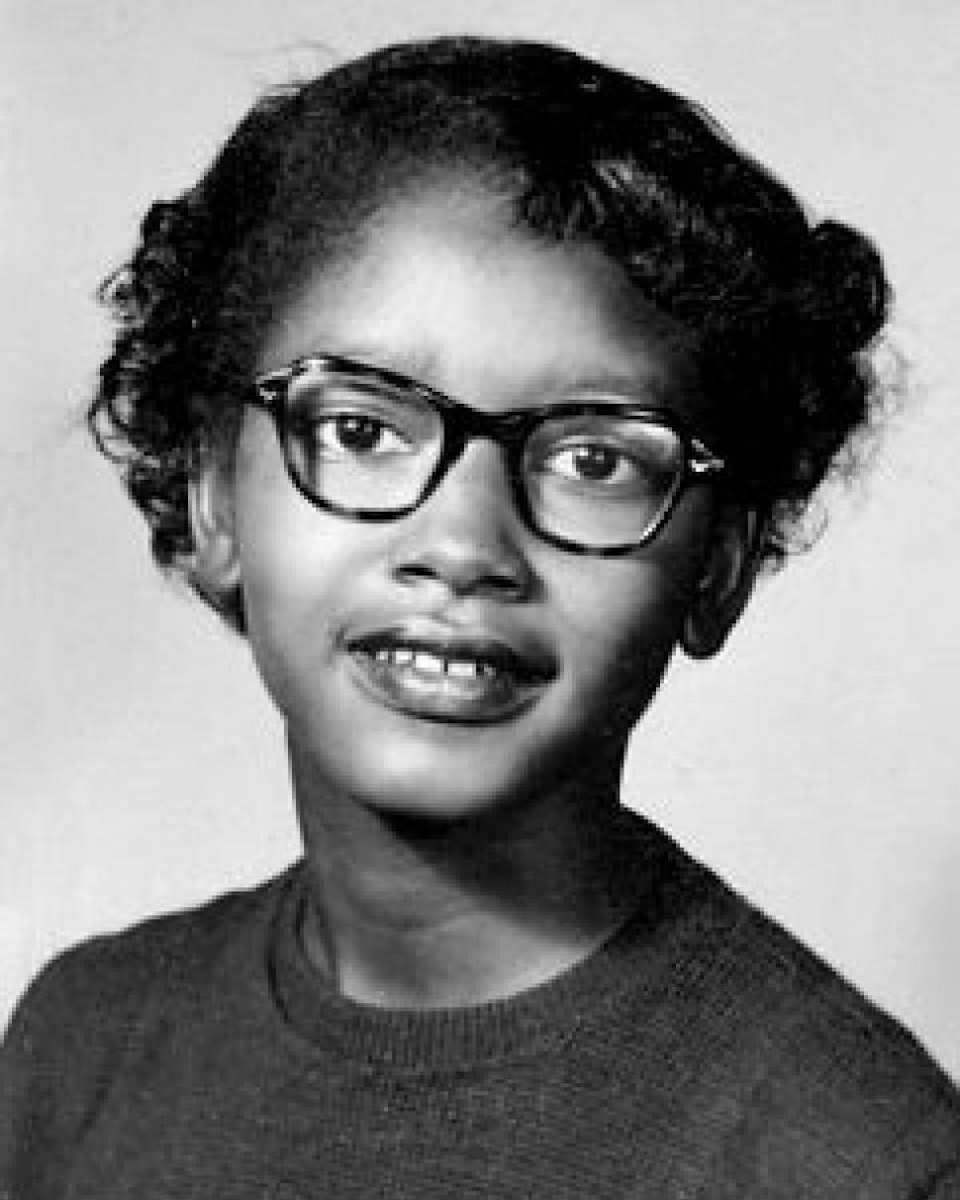Claudette Colvin - A Young Hero in the Fight for Justice
Born: September 5, 1939, Birmingham, Alabama, U.S.A.
At 15, Claudette Colvin refused to give up her bus seat, helping end segregation.
Colvin was born on September 5, 1939, in Montgomery, Alabama. As a young girl, she moved in with her great aunt and uncle, taking their last name. They lived in Pine Level, a small town outside Montgomery, also the hometown of Rosa Parks. Growing up in the segregated South, Colvin quickly became aware of the unfair laws that shaped the daily lives of Black Americans.
Claudette attended Booker T. Washington High School and was known as a smart, hardworking student. She made straight A’s and was active in the NAACP Youth Council, where she was mentored by Rosa Parks herself. At school, Claudette learned about Jim Crow laws and civil rights. These lessons made her think deeply about freedom, fairness, and what it meant to be a citizen in America. Like many Black students in Montgomery, Claudette took the bus to and from school. She paid the same fare as white passengers but was required to sit in the back of the bus. If the ‘white’ section at the front became full, Black riders had to give up their seats, even if they were already sitting in the ‘colored’ section. Claudette, inspired by what she was learning in school, began questioning this rule. She believed it was her constitutional right to sit where she chose.
On March 2, 1955, Claudette Colvin made history. She was 15 years old, riding home on a city bus after school. A white woman got on and found no seats in the front. The driver ordered Claudette and three other Black women to move. The others moved. Claudette stayed seated. Another Black woman, Ruth Hamilton, sat next to her and refused to move as well. When police arrived, Claudette said firmly, “It’s my constitutional right!” She was arrested and dragged off the bus.
After her arrest, Claudette was charged with disturbing the peace, breaking segregation laws, and assaulting a police officer. Although she was convicted on all counts, two of the charges were later dropped on appeal. The one that remained, assault, stuck with her for years.
Despite the challenges she faced, Claudette’s brave stand helped spark major change. In 1956, she became one of four women to serve as a plaintiff in the case Browder v. Gayle. This court case challenged Alabama’s bus segregation laws. The court ruled that segregated buses were unconstitutional under the 14th Amendment. The decision was later upheld by the U.S. Supreme Court, leading to the end of legal bus segregation in Montgomery.
Many people remember Rosa Parks for her brave act of resistance in December 1955. But Claudette Colvin had done something similar nine months earlier. At the time, civil rights leaders believed that Claudette, being only 15, pregnant, and still in school, might not be the right public face for the movement. She didn’t fit the image the leaders wanted, and she was soon left out of the spotlight. But her contribution was just as powerful.
In later years, Claudette spoke proudly about her role. “I feel very, very proud of what I did,” she said. “I do feel like what I did was a spark, and it caught on.” Slowly, the world began to recognize that spark. A street in Montgomery now bears her name. March 2 is officially Claudette Colvin Day in the city. In 2021, her juvenile record was finally erased. The district attorney stated that her actions were “conscientious, not criminal” and “inspired, not illegal.”
Today, Claudette Colvin lives in New York. Her story reminds us that heroes come in all ages, and that standing up (or staying seated) for what’s right can change the world.
References:
“Claudette Colvin.” Americans Who Tell The Truth, 7 July 2025, americanswhotellthetruth.org/portraits/claudette-colvin-2.
“Claudette Colvin.” EBSCO, ebsco.com/research-starters/women-s-studies-and-feminism/claudette-colvin.
“Montgomery Bus Boycott.” National Women’s History Museum, www.womenshistory.org/resources/general/montgomery-bus-boycott.
Keywords:
Civil Rights, Justice, Courage, Conscience, Freedom, Responsibility, Challenge Injustices
Explore ARTEFFECT projects about this Unsung Hero:
Claudette Colvin Artworks
- Collections: Art Gallery, Unsung Heroes

